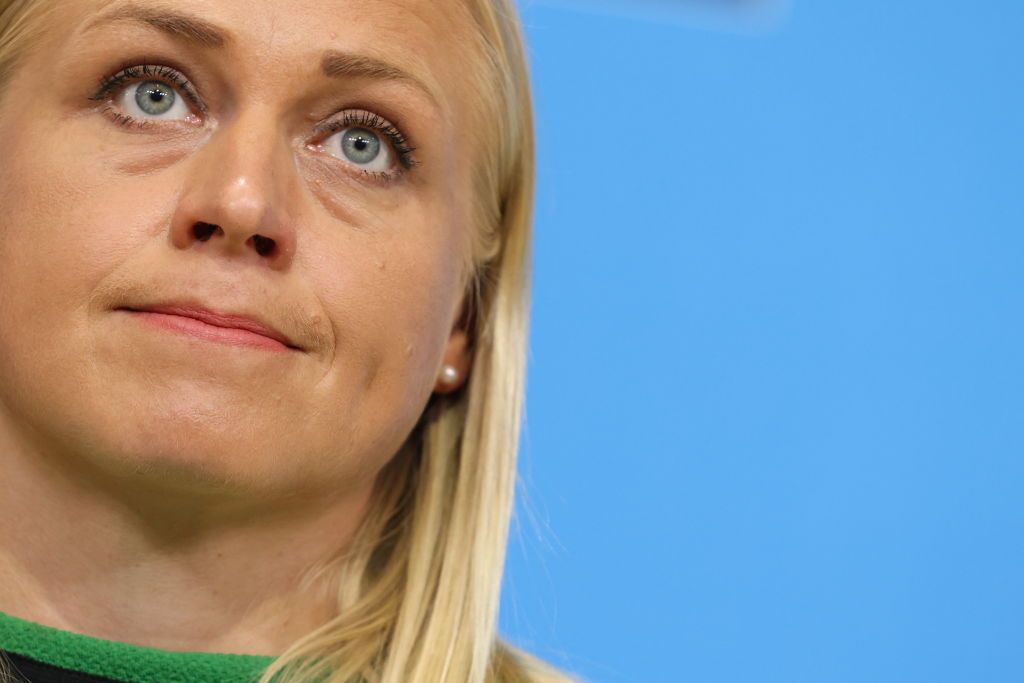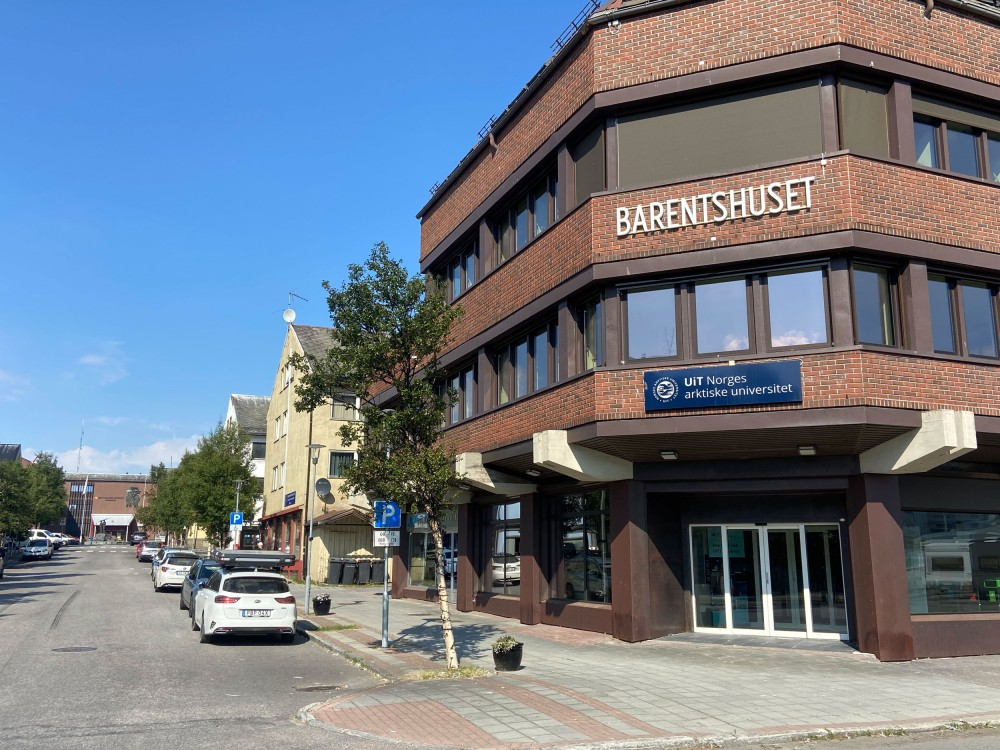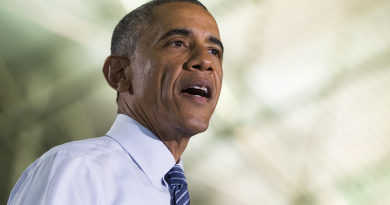Finland mulls an end to Barents cooperation

By Hannah Thule, Thomas Nilsen
“The Finnish Ministry of Foreign Affairs is gradually disengaging from Barents cooperation,” says Elina Valtonen and makes clear that challenges faced by the regions of Finland, Sweden and Norway can be pursued through other programs and cross-border structures.
Foreign Minister Elina Valtonen told the Finnish Parliament that the goal is to reach a consensus with Sweden and Norway on the future of the Barents cooperation during 2024.
The Foreign Minister responded to a question raised by Member of Parliament for the Social Democratic Party, Seppo Eskelinen.
The future of Europe’s northernmost cross-border cooperation has been in jeopardy since March 2022, when the Barents Euro-Arctic Council froze all collaboration with Russia due to the aggressor’s full-scale war on Ukraine.
Barents Euro-Arctic Council is the highest governing body of the Barents cooperation and is led by the member states foreign ministers.
The cooperation also includes Barents Regional Council, lead by the leaders of the nine northern member regions in Finland, Sweden and Norway.
To coordinate the work, an International Barents Secretariat is located to Kirkenes, Norway. Next to it is also a Norwegian Barents Secretariat, owned by the three member regions Nordland, Troms and Finnmark.
Other ways to cooperate
With Russia out of the picture, the Barents cooperation changed focus to a north Nordic cooperation between the remaining member states Finland, Sweden and Norway.
The new format was underscored as more important than ever due to the security situation during the Kirkenes conference in 2023.
However, Valtonen’s message indicates that the intergovernmental joint cooperation is coming to an end, at least in its current form.
In order to curb national debt, the Finnish government has focused heavily on implementing budget cuts and structural reforms, forcing many ministries to revaluate their priorities.
“… due to budgetary constrains faced by ministries, the Finnish Ministry of Foreign Affairs is gradually disengaging from the Barents cooperation,” Elina Valtonen said in her answer to the Parliament.
The Finnish Foreign Minister makes clear that collaboration between the Nordic member states can be achieved through other means than continuing the Barents cooperation.

Valtonen also says that the shift to a Nordic focus eliminates the need for the coordinating role by the Ministry of Foreign Affairs.
Other ways of maintaining close regional cooperation with neighbouring countries are mentioned, for example through forums such as the Nordic Council of Ministers and the Council of Baltic Sea States. European Union funding programmes are another way of receiving support for regional cross-border projects.
Sources close to the Norwegian Government have informed the Barents Observer about similar considerations currently being evaluated by Oslo. The Norwegian Foreign Ministry has already abandoned the national Barents Secretariat, and handed over the budget expenses to the Ministry of Local Government and Regional Development.
Elina Valtonen underlines that the Finnish government has initiated a preparation of programmes aimed at utilising the potential of Northern- and Eastern Finland.
The Finnish Foreign Minister states that the trio presidency between Sweden, Finland and Norway of the Barents Council aims to reach a consensus about the future of the Barents cooperation during 2024.
From its start, the Barents cooperation was chaired on a rotation principle between the four member states.
Helsinki was supposed to hand over the chair to Moscow last year, but with Russia out – and a highly unclear future – it was decided to establish a joint presidency. Instead of a traditional Barents Council meeting, an event was arranged in Joensuu in October last year. For the first time in the 30-years history of the Barents cooperation, no ministers participated.
No state funding – no cooperation
Practical regional cooperation is carried out through the Barents Regional Council, the Regional Committee, and various thematic working groups. The Foreign Ministries of the Nordic member states are responsible for coordination and funding.
In Finland, the participating regions are Oulu Region, Kainuu, North Karelia, and Lapland.
In a letter to Elina Valtonen obtained by the Barents Observer, the Region Mayors state that the Finnish regions will only commit to continue the Barents cooperation if the government has strong coordination and funding responsibility. Otherwise the Barents cooperation on regional level in Finland will come to an end.
The letter also refer to Sweden’s Foreign Ministry considering a withdrawal from the cooperation.
Markus Hirvonen, who is Region Mayor of North Karelia and current Chair of Barents Regional Council, says in a phone interview that funding and coordination is required either from the Ministry of Foreign Affairs or from another government source.
“If the governments are part of the Barents cooperation, North Karelia will continue to be active. If they withdraw, we will not have the economic means nor resources to continue the same way.”
Without government involvement the friendly relationship [between the regions] and some sort of unofficial collaboration will probably remain. But the official cooperation will most likely come to an end, he says.
Hirvonen asserts that the Finnish regions want the government to be heavily involved. This is crucial for facilitating effective cross-border cooperation.
“The regions don’t have the mandate to implement, for example, transport and environmental projects that reach across national borders. It will become very hard without national coordination.”
In case government funding stops, the governors and regional mayors of the Nordic member regions will have to discuss possible solutions in autumn. Perhaps we can find a solution, he says.
One of the arguments for disengaging is that there are other ways for the Nordics states to collaborate on intergovernmental and interregional level, do you agree?
“Cooperation does exist between the Nordic countries and different regions, but North Karelia will not have any clear structures for collaborating with the North outside of the Barents cooperation.”
“We don’t have any other collaborative structures for the issues that are central to the Barents cooperation, such as culture, economic cooperation, transport and logistics, as well as social and health issues. The situation probably differs from region to region.”
Change of structure
Hirvonen says that if the Barents cooperation is to continue, the structure needs to be changed to fit the new Nordic format. And the name should also be changed.
There is no need for very formal, top-level committee-like meetings anymore. This was necessary to foster friendly relations with Russia. The Nordic member states could instead focus on achieving the objectives and getting things done, he says.
“In retrospect, we should have started thinking about the reformation of the Barents cooperation without Russia sooner. Instead we continued in the same way, but with one country less.”
In September 2023, seven months after freezing all cooperation with Russia, The Foreign Ministry in Moscow announced its withdrawal from the Barents Council.
Nordic format
During the Kirkenes Conference, in March 2023, the future for the new Nordic format still looked bright.
It was stated that the need for cross-border interaction in the Nordic region was more important than ever due to the security situation.

During the inauguration ceremony, both Finnish Foreign Minister at the time, Pekka Haavisto, and Swedish Foreign Minister Tobias Billström, assured in their speeches held via video link, that both countries were committed to keeping the cooperation going in its new format.
The Kirkenes conference is a venue for discussing high north policies and the development of the Barents region. It takes place annually in the Norwegian border town of Kirkenes.
Change of tone
However, the Finnish and Swedish Foreign Ministers’ tones regarding the future of the Barents cooperation had changed at the Kirkenes Conference in February 2024.
The ministers’ speeches, also this time shared over video link during the inauguration ceremony, did not echo the same commitment to the cooperation as the year before.
Finland’s current Foreign Minister, Elina Valtonen, focused on mentioning other ways forward.
She brought up NATO as a source of stability in the Arctic, and stated that Finland is “currently taking stock nationally and within the Trio Presidency of Finland, Sweden and Norway, on how to move forward in the Barents Council.”
A similar uncertainty of the Barents Cooperation was conveyed in Billström’s speech.
He said “Sweden is convinced that the ongoing discussions on the future of the Barents Cooperation led by the Trio presidency will produce a sustainable solution, adding value to the Nordic part of the Barents Region.”
Instead of referring to the initiatives of the Regional Council and the working groups, he said Sweden will contribute through its N5-cooperation (Foreign and security cooperation of the Nordic countries) and through the presidency of the Nordic Council of Ministers.
Billström also mentioned The Baltic Sea Youth Council as a valuable contribution of people-to-people interaction, but failed to mention the Barents Youth Programme already in place for the purpose.
Related stories from around the North:
Greenland: Indigenous groups need greater influence in Arctic Council says Inuit org, Eye on the Arctic
Norway: Built to befriend Russia, Barents Cooperation transforms to Nordic front, The Independent Barents Observer
Russian: Lavrov formally withdraws Russia from Barents cooperation, The Independent Barents Observer



